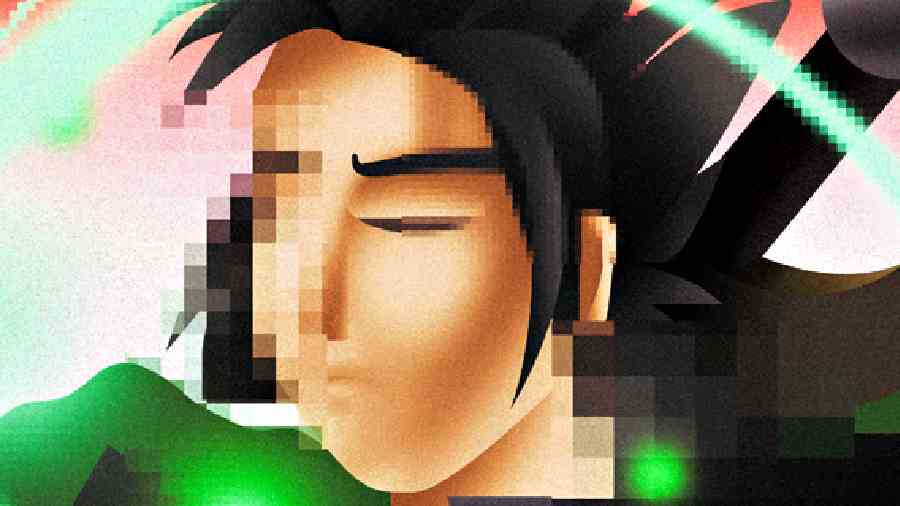One of the year’s most anticipated video games isn’t really new. It’s 15 years old. And it’s a prequel to a game that’s even older.
The new game is Crisis Core: Final Fantasy VII Reunion. It’s a reboot of a hand-held game with almost the same name from 2007, except with nicer graphics and sped-up battles so it can be resold for modern systems, including new PlayStation, Xbox and Nintendo consoles. It’s also a prequel to yet another game reboot, 2020’s Final Fantasy VII Remake.
With Reunion, the maker of Final Fantasy, Square Enix, is capitalising on the enterprise of nostalgia. Final Fantasy, originally released in 1987, became a blockbuster when the seventh instalment debuted in 1997. There players took on the role of Cloud, an angsty mercenary working with a group of misfits to prevent the apocalypse. Since then, Final Fantasy VII has become one of the most influential games in history, spawning spin-offs, animated movies and fan fiction.
Most video game reboots don’t do much more than bump up the resolution of the graphics, but Reunion is different. With completely overhauled visuals and smoother gameplay, it is much better than the original. It’s a strong example of how to do a reboot with justice and to keep a well-established title going with a very safe bet.
“We can see the audience for these characters and the Final Fantasy VII franchise better than if we were to do something that didn’t already have a certain amount of recognition,” Yoshinori Kitase, Square Enix’s executive producer of Reunion, said.
I finished Reunion after playing part of the original Crisis Core. The changes in the battles and visuals transformed the game from a so-so instalment into a must-play episode of Final Fantasy, whose cachet in the gaming world rivals that of Star Wars in pop culture.
Reunion is also an extreme approach to a “remaster”, video game parlance for an old game whose graphics have been scaled up to look better on new TVs. Since Square Enix originally released Crisis Core for a hand-held device, the obsolete PlayStation Portable, the graphics had to be redone.
The producers also took an extra step to fix the most annoying aspect — the battle system — to make progress more fast-paced and fun. The game centres on Zack Fair, a member of the elite military force, Soldier, which is controlled by Shinra, the world-dominating electric power company.
Zack has to track down a pair of comrades who have deserted Shinra. It’s not a spoiler to say our hero meets a tragic end, a fact that has been well-known by fans of the franchise for more than two decades. But the prequel tells the story of how his legacy contributed to the epic events of Final Fantasy VII.
Despite it all, the game is not nearly as polished or as highly produced as its sibling, Final Fantasy VII Remake. That’s because Reunion is essentially an intermission for a much bigger show. Its main purpose, according to Square Enix, is to keep gamers hooked on the franchise in between releases of Final Fantasy VII Remake, which sold 3.5 million copies in its first three days in 2020, making it one of the fastest-selling PlayStation 4 games. That remake is being spread out into instalments that will come out every two to three years.
“It’s going to be a long wait,” Yoshinori said. “So we want to make sure to keep those fans... interested.”
The game gives lots of airtime to Aerith, Sephiroth and Cloud, the stars of Final Fantasy VII, fleshing out these characters and setting the stage for the epic game.
In terms of gameplay, Reunion takes a novel approach to battles. Players can freely control Zack in 3D space, swinging his giant sword at a monster and dodging its attacks in between nuking it with magic spells. This feels more stimulating than the old-school “turn-based” system.
In the end, it took me about 18 hours to complete the game, and I had fun. My chief complaint is that the game was too easy. After completing a small number of optional missions, players will find themselves overpowered and vanquishing the game’s main villains in a few effortless blows.
Some gamers eager for brand-new titles may feel that releasing reboots is too easy for game makers like Square Enix. Yoshinori said the risk to reboots was that they could end up appealing to a single demographic of older fans. “We decided midway through development that we had to up the game,” he said.
NYTNS











